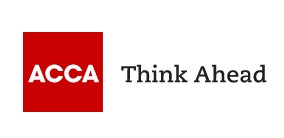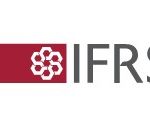
Proposed changes to the IFRS Foundation’s Constitution to create an International Sustainability Standards Board (ISSB) to set sustainability standards are welcome, but more clarity is needed says ACCA (the Association of Chartered Certified Accountants). In ACCA’s official response to the consultation, while it says it supports the Foundation’s proposal for the new board to have an investor focus, ACCA also seeks greater clarity over the scope of the standards it will introduce.
ACCA recommends that the IFRS Foundation defines the meaning of the terms ‘enterprise value’ and ‘sustainability’ in the context of the standard-setting proposals more clearly, highlighting that the name ‘IFRS sustainability standards’ may not accurately reflect the intended scope of the future standards.
Yen-pei Chen, ACCA corporate reporting and tax manager explains: ‘In ACCA’s view, there’s a need for a global baseline of standards on a wide range of topics, extending beyond financial performance and position, but equally beyond environmental or social impact. They include intangibles not recognised on the balance sheet, such as innovative processes, know-how and corporate culture as represented by the six interconnected capitals in the International Integrated Reporting (<IR>) Framework.’
ACCA agrees with the proposal that members of this new board have professional backgrounds that reflect a diverse range of expertise and roles. It says that the IFRS Foundation should also consider the need for expertise outside of traditional capital markets.
Yen-pei Chen adds: ‘As a global professional body, we also want to see the composition of the Trustees and Advisory Council more actively reviewed. The geographical make-up of the Monitoring Board may also need change, to ensure that Africa and South Asia are appropriately represented.’
In the light of the European Commission’s legislative proposal for the EU Corporate Sustainability Reporting Directive and EFRAG’s mandate to develop European sustainability reporting standards, ACCA urges the IFRS Foundation adopts formal mechanisms for co-construction with EU policy-makers and EFRAG.
Other regions and countries are likely to supplement the new board’s international baseline of standards with their own jurisdiction-specific disclosure requirements, including metrics relating to companies’ impacts on economies, societies and the environment. To make sure that the international standards provide a consistent global baseline to jurisdictional disclosure needs, ACCA calls on the new board, once in place, to produce a conceptual framework for non-financial reporting and the first climate disclosure standard as early as possible.
An international multilateral mechanism for assessing equivalence and maintaining consistency between different jurisdiction-specific disclosure requirements is needed, to ensure comparability and minimise undue reporting burden. This should be overseen by an international organisation with competence in achieving multilateral consensus, such as the OECD.
Yen-pei Chen concludes: ‘Although this may not need to be reflected in the Constitution, close collaboration between the IASB and the new board will be crucial. We encourage the IFRS Foundation to consider developing a conceptual framework for corporate reporting as a whole, thus strengthening the link between financial and non-financial reporting.’


